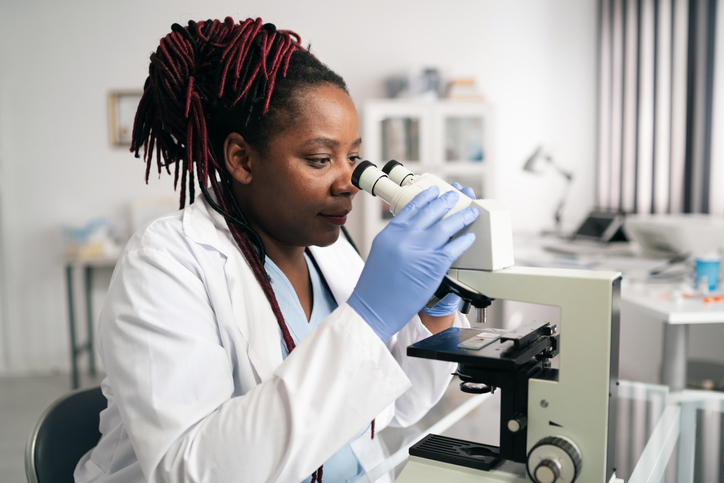Black Engineers Work To Revolutionize Pulse Oximeters For Patients Of Color
Source: valentinrussanov / Getty
Black engineers from Brown and Tufts universities are making historic strides in the medical field.
A team of Black tech leaders is developing groundbreaking technology that will help patients of color obtain accurate readings from pulse oximeters. The non-invasive medical devices are used to measure oxygen levels in the blood, but evidence has shown that they don’t work well on people with darker skin, as melanin can block the absorption of light needed for the machine to accurately measure oxygenated blood in a patient’s finger. Thankfully, that will soon change because of new inventions from Kimani Toussaint, Rutendo Jakachira and Valencia Joyner Koomson.
Toussaint, a professor and senior associate dean of engineering at Brown, is working with his doctoral student Jakachira to develop lighting that will help pulse oximeters work on darker skin complexions. Koomson, a decorated Black associate professor teaching electrical and computer engineering at Tufts, is developing a “smart” oximeter device that will automatically adjust and adapt light sensors to darker skin tones.
“When you take a photo, you adjust the light to get an accurate picture,” said Koomson during an interview with Stat News, “That’s what we’re doing — adjusting the light.”
Faulty Pulse Oximeters Can Lead To Dangerous Outcomes For Black Patients
Inaccurate oximeter readings can lead to fatal consequences for Black patients. Without proper lighting, readings can potentially mask dangerously low oxygen levels in patients with darker skin complexions. The problem reared its ugly head during the height of the COVID-19 pandemic. Physicians relied on the device to detect oxygen deficiencies, but many Black people suffered as a result. A study by the University of Michigan found that in December 2020, Black patients were three times more likely to have a condition called hidden hypoxia, which is a deficiency in the amount of oxygen reaching the tissues. Many of those impacted were less likely to receive supplemental oxygen during their hospital stay, a subsequent study found.
Koomson, who is a micro and nanoscale system expert, said she knew about the issue for decades but struggled to cast a brighter light on the deficit.
“In all the textbooks I reviewed, they never mention melanin absorption. The fact that was being left out concerned me,” she explained. “There wasn’t enough data to show these errors affected clinical treatment. People could say, this is within an acceptable margin of error.” Now, she and her team have received funding to make an impact in the medical industry and hopefully, save lives as a result.
A Call For Diversity
Toussaint and Koomson’s bold initiative comes at a time when diverse cultural perspectives and ideas are sorely needed in engineering. Black experts only account for 5% of the engineering workforce. Black women make up less than 2% of the industry. Toussaint told the publication that their groundbreaking innovations could help to bring more diversity to the space.
“When you don’t see others who look like you in a field, you have questions about belonging,” Toussaint, who learned about the pulse oximeter disparity in 2020, said. “We can’t say anything about anyone’s intent, but we can talk about the structure of science being one in which you don’t have broad diversity, and then you have these blind spots. The issue of pulse oximeters is absolutely a poster child for having diversity in science.”
SEE ALSO:
Philanthropist Robert F. Smith Aims To Cultivate Pathways In STEM For Underrepresented Scholars
The post Black Engineers Work To Revolutionize Pulse Oximeters For Patients Of Color appeared first on NewsOne.

